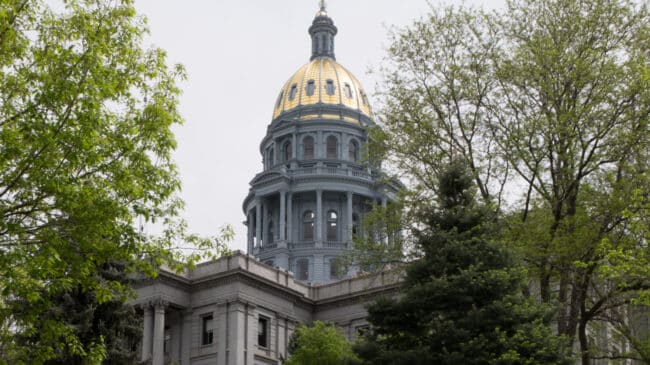A version of the following public comment was submitted to the Colorado Department of Regulatory Agencies on July 24, 2024.
Reason Foundation recognizes and appreciates the rigor and diligence with which the Colorado Department of Regulatory Agencies (DORA), advisors, and stakeholders have worked to build the operating regulatory framework for The Natural Medicine Health Act.
The process overall appears to have generated a prudent set of rules that balances client safety with strong licensee oversight. As a first-in-the-nation exercise in developing such a robust framework, DORA’s work is important because both the strengths and shortcomings of its proposed framework are likely to be replicated elsewhere.
In that spirit, Reason Foundation has noted several areas for potential improvement to the draft permanent rules DORA and the Colorado Department of Revenue have proposed:
- 2.2.A.9— “A Facilitator licensee must recommend in writing that any prospective participant who is taking a psychotropic medication identified as a risk factor on the safety screen should obtain applicable medical and behavioral health clearance from a physician (MD) or (DO), an Advanced Nurse Practitioner (APN), a Physician Assistant (PA), or a Clinical Facilitator with prescribing authority prior to administering natural medicine services.” We believe this requirement is both ambiguous and overly restrictive. The Centers for Disease Control in 2020 estimated that roughly 16% of Americans take medications for mental health—and among the population of individuals seeking the therapeutic use of natural medicines this ratio may be higher. There is no clear definition of “psychotropic” nor is there public health consensus on whether the most common antidepressants, such as escitalopram, are contraindicated. Indeed, one recent report by Atai Life Sciences clinical studies shows that concurrent antidepressant use with psilocybin is safe. We applaud the requirement of facilitators to develop a safety plan for potentially contraindicated psychotropic substances and affording facilitators the option not to work with a patient.
- 2.8.C — “Following completion of didactic educational requirements, training licensees must complete 40 hours of supervised practicum.” Unnecessarily long training requirements and other supervised requirements for students in training will dramatically increase costs for consumers. Practicum hours could be completed concurrently with didactic training or through the proposed “training” license where students can serve clients while acting under the supervision of an approved supervisor. The proposed practicum training requirement already exceeds the requirements for a psilocybin facilitator license in Oregon by 25%, and there is no evidence that more instructional hours will affect client safety. We propose reducing all didactic module requirements hours by 50% and replacing these didactic modules with supervised practicum hours with financial remuneration permissible for the trainee.
- 2.4.A.1 — “Applicants who are former legacy healers, and who do not hold a license or other credential to practice facilitation, may apply for licensure through an accelerated training pathway. In addition to the general requirements for licensure set forth in Rule 2.1, all applicants must demonstrate that 1. The applicant has substantially equivalent education, experience, or credentials…” Rules for legacy healers are both ambiguous and potentially incriminating. These rules offer no precision on how regulators will assess equivalency between legacy experience and approved education requirements. Additionally, providing documentation of experience may require healers to admit illicit activity. This rule needs explicit examples and standards for equivalency and for the ability to attain legacy status without providing proof of illicit activity.
- 2.5.C.1.a—- Rather than list which providers may concurrently use natural medicines with their existing state health license, the regulations should allow any state-licensed healthcare professionals to administer natural medicines within the scope already set by the state. Otherwise, regulators may inadvertently exclude practitioners, such as naturopathic doctors, from serving their clients.
- 4.1.E.4.b— Training programs should not require two faculty members. Small businesses should be permitted to operate with one part-time member so long as they meet other quality standards.
- 3105 — Colocation of multiple licenses and service options is a welcome addition that may reduce costs and allow ecosystems of complementary business types to materialize.
- 3115.B — There’s no specification of minimum resolution for video surveillance equipment. Licensees may not know how to remain in compliance if a minimum resolution is not specified.
- Secs. 3115 and 3120 — These rules do not establish nor define any central inventory tracking system similar to the electronic tracking systems used to monitor licensed cannabis inventory. The proposed regulations should either authorize the department to contract with the provider of a centralized inventory tracking system or should specify parameters that licensee inventory tracking systems must include. (In particular, recalls are aided by a central tracking system).
- 3405.B — Allow transportation directly to consumers so that facilitators can potentially avoid violating IRS 208(e), threatening their ability to claim tax deductions. IRS section 208(e) prohibits businesses engaged in trafficking of a Schedule 1 substance from claiming business deductions. While there is little legal precedent for psychedelic therapy, facilitators might credibly claim that if they only provide services to clients who already purchased psilocybin, their business would not violate 208(e). Allowing direct sales to consumers within a healing center could open up important cost savings.
- 4 CCR 755-1 8.3.B — “If it appears to the Director that a person without a license is engaged in the provision of facilitation, i.e., the performance and supervision of natural medicine services for a participant, the Director may issue an order to cease and desist,” This section is unclear as to what constitutes “facilitation.” Under SB 290, persons may conduct paid “harm reduction” services concurrently with clients ingesting natural medicines and this service may be substantially similar to religious, ceremonial, or therapeutic experiences. This section needs to more clearly define what constitutes “facilitation” and how it is distinct from protected harm reduction or ceremonial practices that may include commercial services and financial remuneration.
- 8.1.B.5 — This section would unfairly penalize someone who “habitually” uses a controlled substance, even when their use is otherwise non-problematic. For instance, this could discipline licensees for non-abusive substance use, such as weekly cannabis use as a sleep aid or microdosing psilocybin for anxiety.
- 6.17.G — There is no scientific basis for limiting the ratio of group experiences to a maximum of one facilitator per four clients. Group facilitation is one of the most important approaches to reduce cost and increase accessibility. Facilitators should be able to hire unlicensed staff to help clients throughout the experience—for instance, if a client needs to use the restroom. We recommend no formal ratio limits of facilitators-to-client until there is evidence of a need. If a ratio must exist, it should allow unlicensed guides to count toward the staff-to-client ratio.



